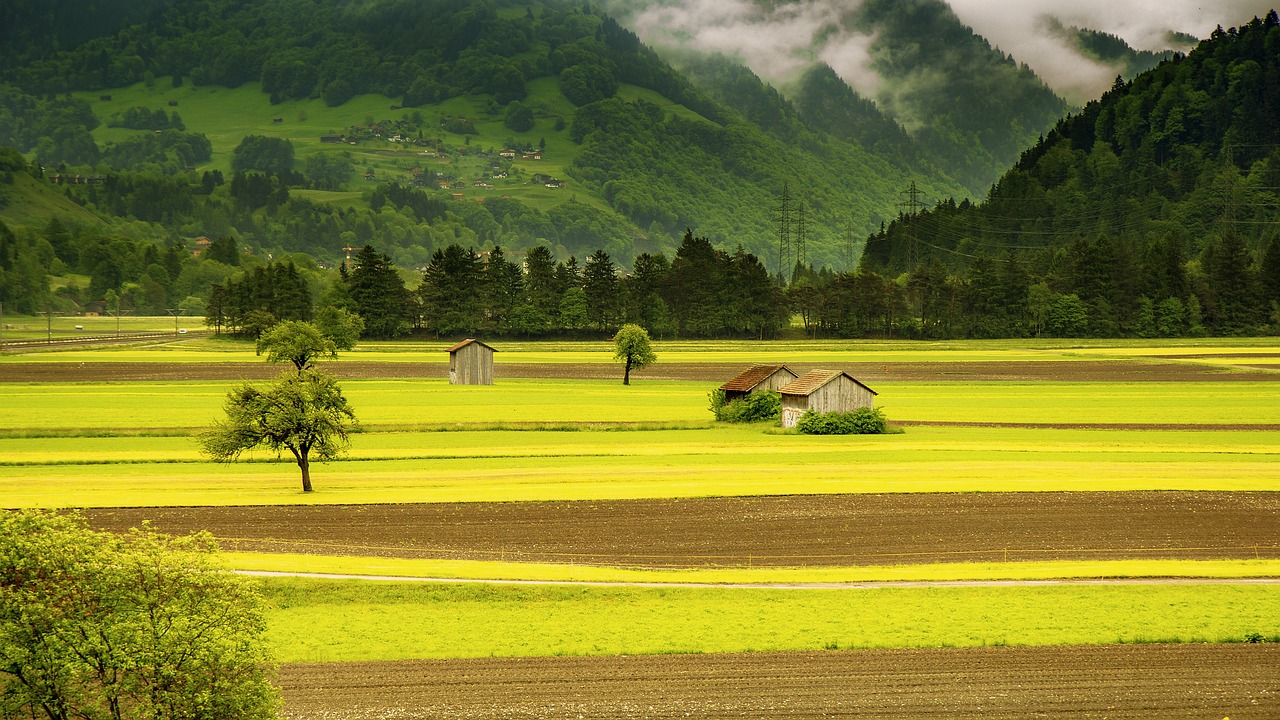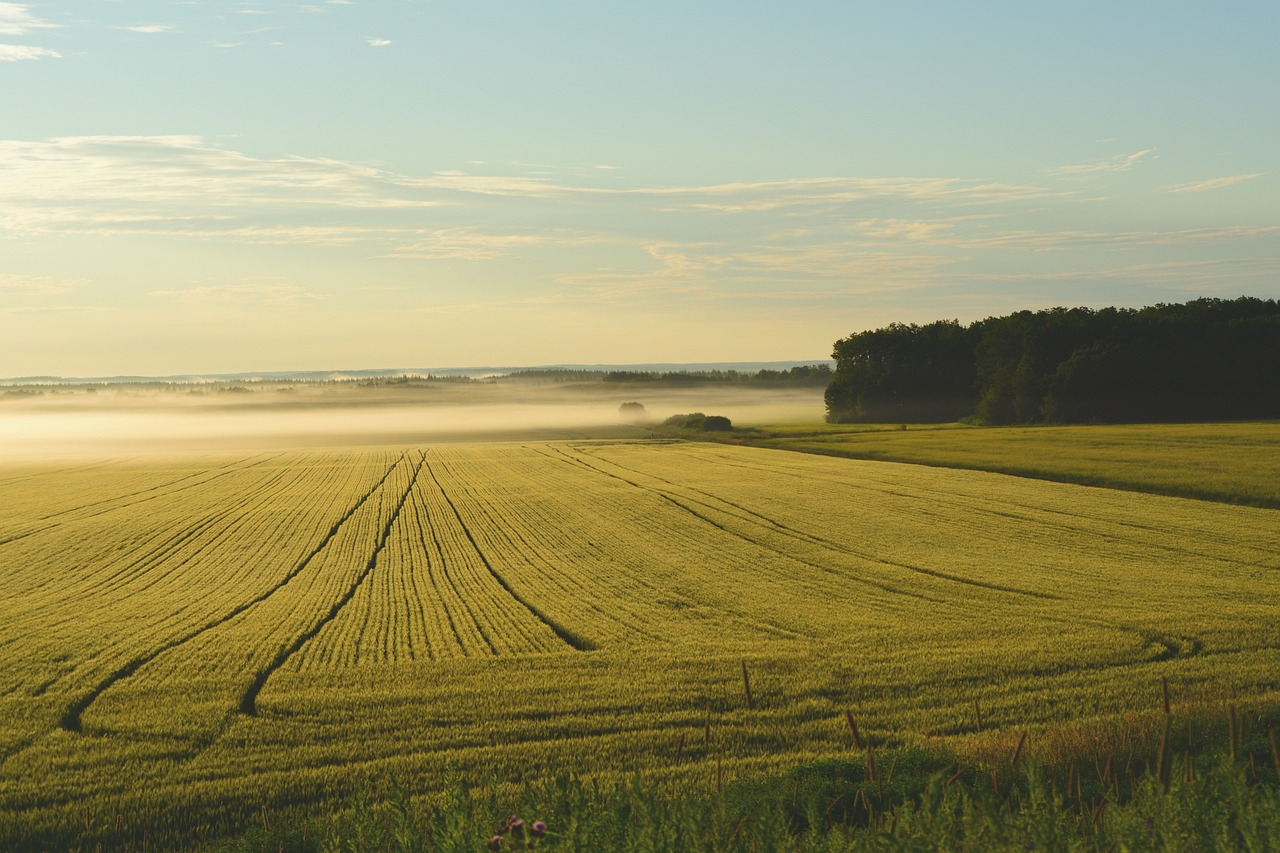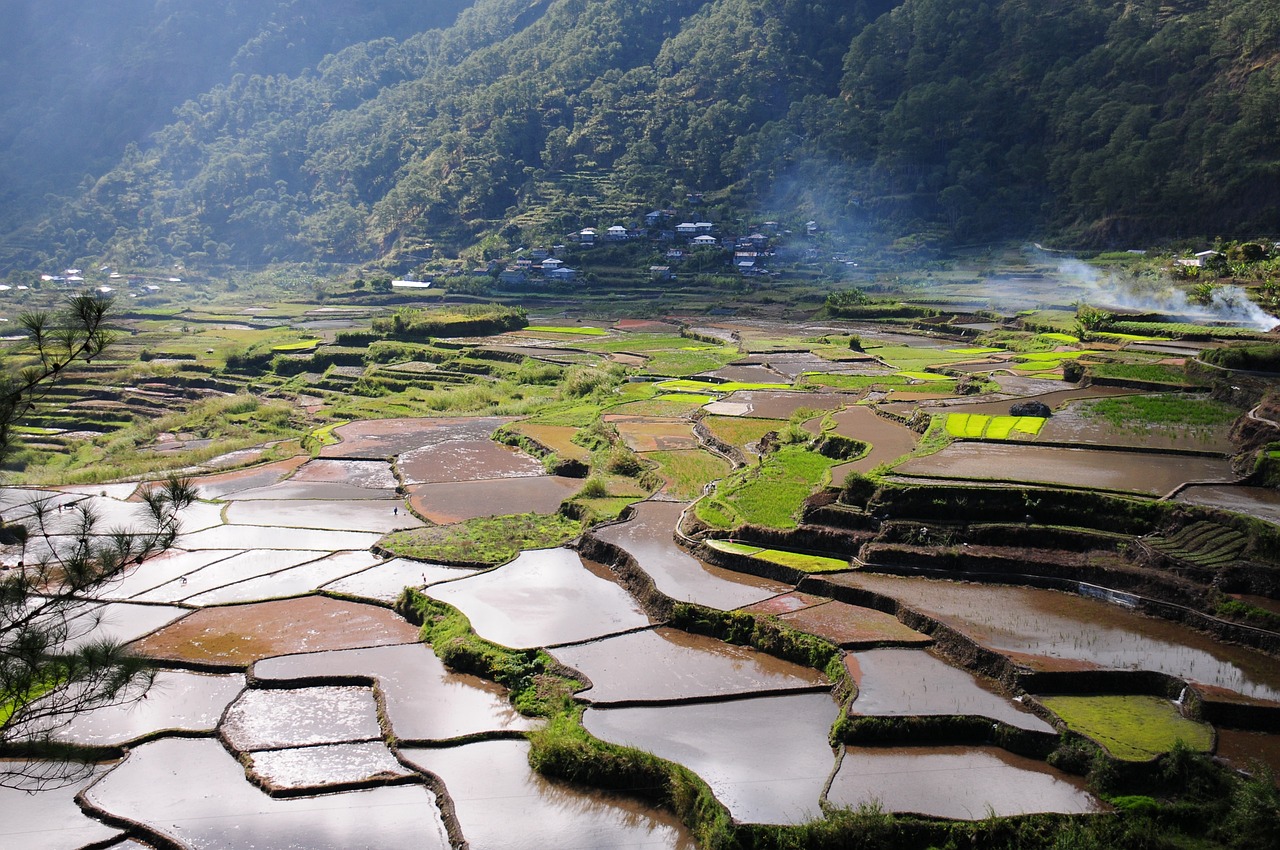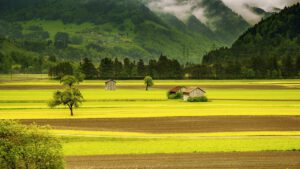The Rise of Farmland Investment

In recent years, a significant trend has emerged: wealthy individuals and institutional investors are increasingly purchasing farmland. This growing interest can be attributed to a variety of factors, such as asset diversification, long-term appreciation, and the rising demand for food. A report from the National Council of Real Estate Investment Fiduciaries (NCREIF) reveals that farmland has outperformed other asset classes, boasting an average annual return of 10.5% over the past two decades. This impressive statistic underscores farmland’s appeal as a stable and lucrative investment option. As more affluent investors recognize the potential of agricultural land, the landscape of farmland ownership is rapidly evolving, with significant implications for the broader economy.
Food Security Concerns
With the global population projected to reach 9.7 billion by 2050, food security has become a critical issue. Wealthy investors are acutely aware of this challenge and see farmland as a hedge against food scarcity and inflation. By investing in agricultural land, they not only secure their financial future but also contribute to addressing a global crisis. The United Nations has highlighted the urgent need for increased food production to meet future demand, making farmland ownership a strategic move for investors. As a result, the rich are positioning themselves to benefit from the growing importance of food security in the coming decades.
Climate Change and Sustainable Practices
Climate change is reshaping the agricultural sector, making sustainable farming practices more essential than ever. Investors are increasingly seeking farmland that employs regenerative agriculture techniques, which enhance soil health and biodiversity. The Rodale Institute suggests that such practices can boost crop yields by up to 30% while simultaneously sequestering carbon in the soil. This dual benefit of profitability and environmental sustainability is attracting affluent buyers to the farmland market. As awareness of climate change grows, the demand for sustainable agricultural practices is expected to continue rising, further driving interest in farmland investments among the wealthy.
Government Incentives and Policies

Government policies promoting sustainable agriculture and food production are also encouraging investments in farmland. Programs like the Conservation Reserve Program (CRP) in the United States offer financial incentives for landowners to implement conservation practices. These policies provide a safety net for investors and align with the growing consumer demand for sustainably sourced food. As a result, wealthy individuals see farmland as a viable investment opportunity with potential tax benefits. The alignment of government incentives with investor interests is creating a favorable environment for farmland acquisition, contributing to the trend of increased investment in agricultural land.
The Impact of Inflation
Inflation has been a significant concern for investors, especially in the aftermath of the COVID-19 pandemic. Farmland is often viewed as a hedge against inflation, as its value tends to rise in tandem with increasing prices. According to the USDA, farmland values increased by 7% in 2021, demonstrating the asset’s resilience in times of economic uncertainty. This characteristic makes farmland an attractive option for wealthy investors looking to preserve their wealth. As inflationary pressures persist, farmland’s role as a safeguard against economic instability is likely to become even more pronounced, further fueling interest in this asset class.
Technological Advancements in Agriculture
The integration of technology in agriculture has revolutionized the industry, enhancing efficiency and productivity. Precision farming, data analytics, and biotechnology are just a few examples of how technology is boosting crop yields and reducing costs. Wealthy investors are eager to capitalize on these advancements by acquiring farmland that utilizes cutting-edge technologies. A report by McKinsey & Company estimates that digital agriculture could increase global farm productivity by 70% by 2050, further driving interest in farmland investments. As technology continues to transform agriculture, the potential for increased returns on farmland investments is likely to attract even more affluent buyers.
Diversification of Investment Portfolios
For many wealthy individuals, diversification is a key strategy to mitigate risk. Farmland offers a unique opportunity to diversify investment portfolios beyond traditional assets like stocks and bonds. By including agricultural land in their portfolios, investors can reduce volatility and enhance overall returns. A study by the American Farmland Trust indicates that farmland investments have shown low correlation with other asset classes, making them an appealing option for risk-averse investors. As the benefits of diversification become more widely recognized, the trend of investing in farmland is expected to gain momentum among the affluent.
The Appeal of Rural Living
The COVID-19 pandemic has prompted many people to reevaluate their living situations, leading to a surge in interest in rural living. Wealthy individuals are increasingly seeking out rural properties that offer both farmland and recreational opportunities. This trend has driven up demand for agricultural land, as buyers look for a lifestyle change away from urban centers. The National Association of Realtors reported a 20% increase in rural property sales in 2021, underscoring the growing appeal of farmland as a lifestyle investment. As remote work becomes more prevalent, the allure of rural living is likely to continue attracting affluent buyers to the farmland market.
Global Land Acquisition Trends

The trend of wealthy individuals buying farmland is not limited to the United States. Globally, there has been a surge in land acquisitions by investors seeking to capitalize on agricultural opportunities. According to a report by the World Bank, foreign investment in agricultural land has increased significantly in developing countries, where land is often more affordable. This global perspective on farmland investment highlights the increasing recognition of agriculture as a valuable asset class. As international interest in farmland grows, the implications for local economies and food systems are becoming increasingly significant.
Conclusion: Why You Should Pay Attention

The trend of wealthy individuals investing in farmland is a clear indicator of the asset’s growing importance in the global economy. With concerns about food security, climate change, and inflation, farmland presents a unique investment opportunity that combines financial returns with social responsibility. As the demand for sustainable food production continues to rise, paying attention to the farmland market could provide valuable insights for both investors and consumers alike.




